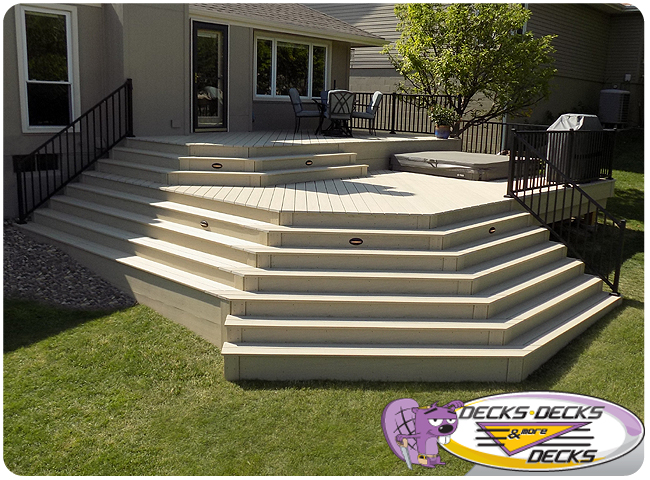PVC vs. Composite Decking: Which is Right for Your Home?
When it comes to choosing the perfect decking material for your home, PVC and composite decking are two popular options that offer durability, low maintenance, and aesthetic appeal. However, each has its unique characteristics that might make one a better fit for your specific needs. In this guide, we’ll break down the key differences between PVC and composite decking to help you make an informed decision.
What is PVC Decking?
PVC (polyvinyl chloride) decking is a type of synthetic decking material made entirely from plastic. Unlike traditional wood decking, PVC is designed to mimic the look of wood but with added durability and low maintenance.
Advantages of PVC Decking:
- Durability: PVC decking is highly resistant to moisture, rot, and insects, making it a long-lasting choice for various weather conditions.
- Low Maintenance: It requires minimal upkeep, needing only occasional cleaning with soap and water to maintain its appearance.
- Color and Design Options: PVC decking comes in a wide range of colors and styles, allowing for customization to match your home’s aesthetic.
Disadvantages of PVC Decking:
- Cost: PVC decking tends to be more expensive upfront compared to composite options.
- Appearance: While modern PVC decking closely resembles wood, some people still prefer the authentic look and feel of real wood.
What is Composite Decking?
Composite decking is made from a blend of wood fibers and plastic. This combination provides the natural appearance of wood with the added benefits of synthetic materials.

Advantages of Composite Decking:
- Natural Look: Composite decking closely mimics the look and feel of natural wood, often with more variation and texture.
- Durability: It is also resistant to moisture, insects, and rot, similar to PVC decking.
- Environmental Benefits: Many composite decking products are made from recycled materials, making them an eco-friendly choice.
Disadvantages of Composite Decking:
- Maintenance: While less maintenance-intensive than wood, composite decking may require periodic cleaning to prevent mold and mildew growth.
- Cost: Composite decking can be costly, though it often provides good value over time due to its longevity and low maintenance requirements.
Key Considerations
- Budget: Determine your budget and compare the upfront costs of PVC and composite decking, keeping in mind long-term maintenance costs.
- Aesthetic Preferences: Consider whether you prefer the look of wood or a synthetic material and how it will complement your home.
- Climate and Usage: Evaluate your local climate and how the decking material will perform in your area, especially if you live in a region with extreme weather conditions.
Conclusion
Both PVC and composite decking offer significant benefits, and the choice ultimately depends on your preferences, budget, and specific needs. PVC decking excels in low maintenance and durability, while composite decking provides a more natural wood appearance with eco-friendly advantages. By carefully considering these factors, you can select the decking material that best suits your home and lifestyle.
Check Out This Blog!

